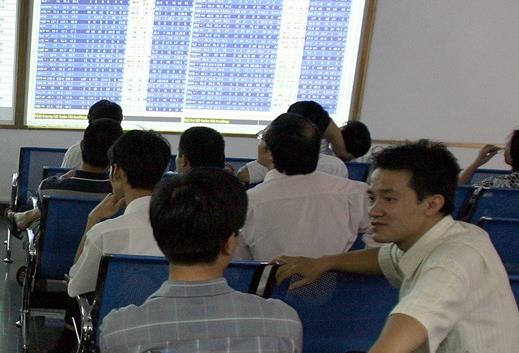Viet Nam’s benchmark VN Index has extended its growth for a fourth straight week, though recent market trading conditions suggest the benchmark index could struggle with rising selling pressures this week.

Viet Nam’s benchmark VN Index has extended its growth for a fourth straight week, though recent market trading conditions suggest the benchmark index could struggle with rising selling pressures this week.
The benchmark VN Index on the HCM Stock Exchange ended last week at 1,050.11 points, posting a weekly gain of 3.7 per cent.
The minor HNX Index on the Ha Noi Stock Exchange finished Friday at 120.76 points and recorded a weekly growth of 1.5 per cent.
The benchmark index has increased by 6.7 per cent since the beginning of the year, and 12.3 per cent since mid-September, while the northern market index has risen 3.3 per cent and 8.2 per cent during the same period.
An average of more than 405.6 million shares, valued at VND9.27 trillion (US$412.2 million), were traded on the two local exchanges in each session last week.
Also, market trading liquidity reached a record high on Friday, in terms of trading value, as VND11.9 trillion worth of shares were traded on both local exchanges.
The market growth was also supported by the net foreign investment, which reached VND2.56 trillion on the two markets.
The market sentiment was mainly dominated by investors’ expectations for businesses to deliver positive earnings reports for their performances in the fourth quarter of 2017, as well as the entire year.
Such expectations boosted stocks in the financial-banking, energy, food and beverage, retail and property development industries, as investors had priced in those companies until they officially released all earnings reports.
Leading businesses in those sectors saw share prices increase last week, including Vietcombank (VCB), property firm Vingroup (VIC), insurer Bao Viet Holdings (BVH) and PetroVietnam Gas Corporation (GAS).
VCB gained 7.4 per cent after five trading sessions, VIC was up 6.7 per cent, BVH rose 4.5 per cent and GAS advanced 2.8 per cent.
However, market volatility increased in the last two sessions, in which the VN Index encountered strong selling pressure when it reached the level of 1,055 points.
Tran Duc Anh, an analyst at Bao Viet Securities Company, told tinnhanhchungkhoan.vn that selling pressures were quite heavy last week, as seen by a record-high trading liquidity and a mixed performance among all stocks.
Though the VN Index was able to increase over five straight sessions, the main source of strength came from large-cap stocks, such as banks and energy firms, which was not a good signal for the market, he said.
“As the VN Index is quite volatile at the moment, I am not too surprised that the index would decline to the 1,000 point level in the next one or two weeks,” Anh said.
Chau Thien Truc Quynh, head of the brokerage division at Viet Capital Securities Company, told tinnhanhchungkhoan.vn that both stock indices were showing signs of weakening and becoming more vulnerable.
The benchmark VN Index this week will drop to test the level of 1,040 points, after struggling and suffering from a technical correction, she said.
Sharing a similar market outlook, brokerage firms also forecast that the benchmark index would either decline or move narrowly on high profit-taking pressures.
Bao Viet Securities Company said in its weekly report that investors began to trade more cautiously, as the market was more exposed to short-term risks, thus, increasing their profit-taking.
The company predicted that the benchmark VN Index could move between 1,055 and 1,060 points this week, while Sai Gon-Ha Noi Securities Company expected the index would move narrowly, around the range of 1,040-1,060 points. – VNS





